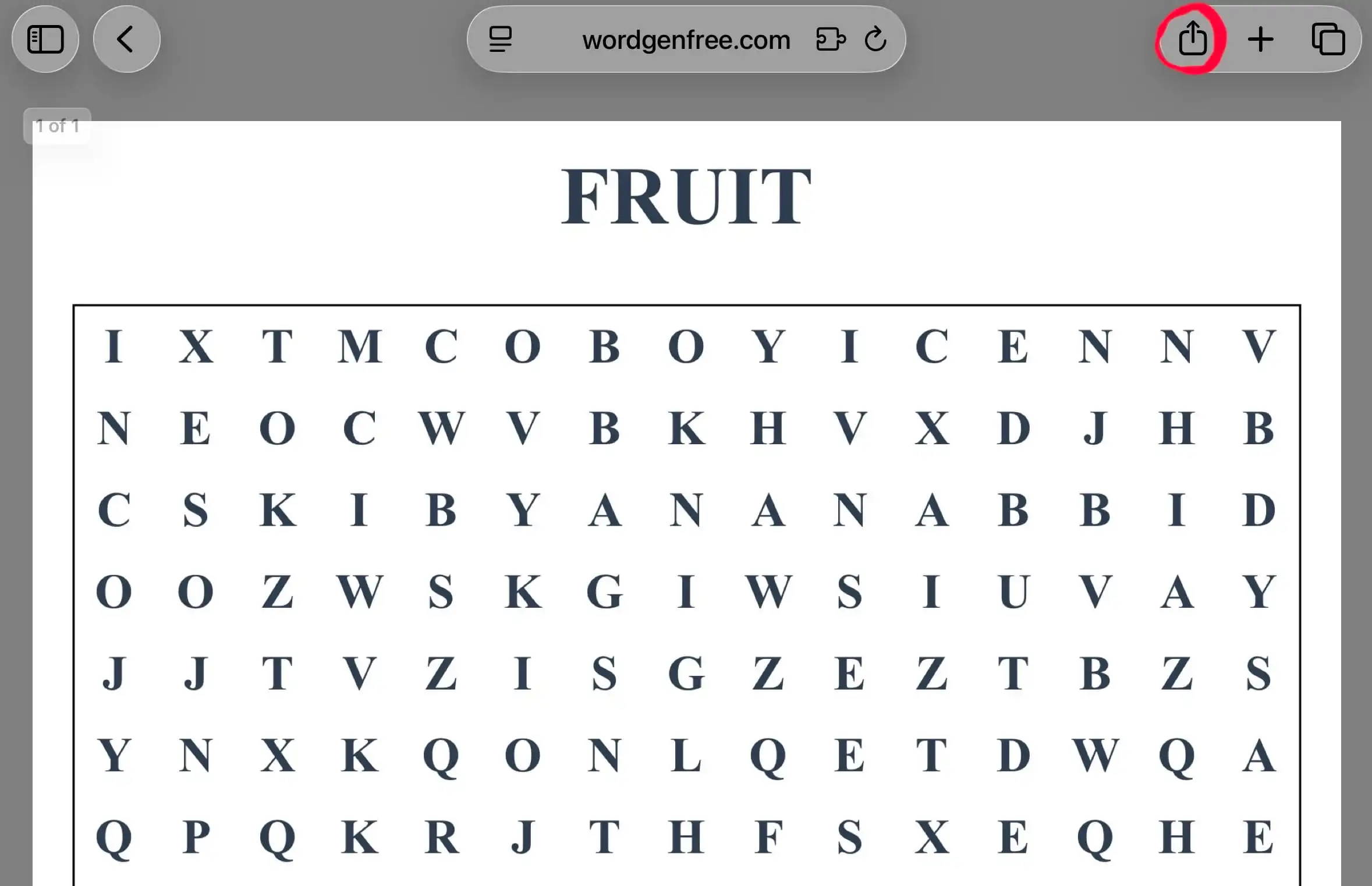Guide to Using the Word Search Generator
Welcome! This guide walks you through everything from basic puzzle creation to tips for teachers, creators, and small-business publishers who want to turn puzzles into printable products or passive income streams. The instructions are practical, step-by-step, and designed for both desktop and mobile users.
1. Getting Started — quick setup
Open the main page (Word Search Generator). You will see a large input box labeled “Enter your words.” Type one word per line. If you want to produce multiple puzzles in a single run, separate each group with a blank line. Example:
Sun Cloud Rain Apple Banana Orange
That example creates two puzzles: a weather puzzle and a fruit puzzle. Add a short title to each list if you want titles printed on the puzzles.
2. Customizing puzzle options
You can change grid size to suit how many words or how long the words are (10x10, 15x15, etc.). Turn on or off diagonal/backwards placement to control difficulty. Choose fonts and visual spacing so the downloaded SVG fits your printable layout. These options help when preparing puzzles for classroom worksheets, eBooks, or digital bundles intended for sale.
3. Generating, downloading and blob links
After entering words and options, press Generate Puzzles. Each puzzle will appear with two download buttons: Download Puzzle SVG and Download Answer Key SVG. If a link shows a blob: URL (for example blob:https://wordgenfree.com/...), use this method to save it correctly:
- On iPhone / iPad: press-and-hold the link → tap Share → Save to Files (choose a folder) → open the Files app to access the SVG.
- On desktop: right-click the link → choose Save Link As or Download Linked File, and pick a folder on your computer.

4. Printing and publishing
SVG downloads are vector — they print crisply at any size, which is ideal for classroom sheets, printable packs, or books. You can import SVGs into Canva, Affinity, Illustrator, or convert to PDF for Amazon KDP. If you're creating products to sell (printables, activity books, or PDF bundles), use descriptive titles, keywords, and a sample puzzle image to help customers find your listings. Keywords to consider for monetisation and discoverability: printable puzzles, educational printables, activity sheets for kids, digital downloads, passive income, publishing income, and e-learning resources.
5. Teaching and classroom tips
Use the generator to create differentiated worksheets — one easy puzzle per student or a set of puzzles by ability level. For vocabulary learning, add topic-specific lists (science terms, geography places) and create answer keys for quick marking. Use the title field to label each sheet with class, date or learning objective.
6. Best practices & troubleshooting
- Keep most puzzles to under 30 words — fewer, better-fitting words reduce overlap and improve readability.
- Avoid very long single words that might push other words out.
- Test downloads on both desktop and mobile devices to confirm save behavior (blob handling varies by browser/app).
- If you see rendering issues, open the SVG in a vector editor or convert to PDF using free tools.
7. Monetisation ideas (optional)
Many creators repurpose puzzles into digital products: printable activity packs, seasonal puzzle bundles, classroom resource packs, or low-content books. Combine multiple themed puzzles into a single PDF and sell on marketplaces like Etsy or Gumroad, or compile puzzle books for self-publishing. Always ensure your final files meet the platform formatting rules.
If you still need help, use the Contact page to email us at wordgenfree@gmail.com. Happy creating!
← Back to Blogs